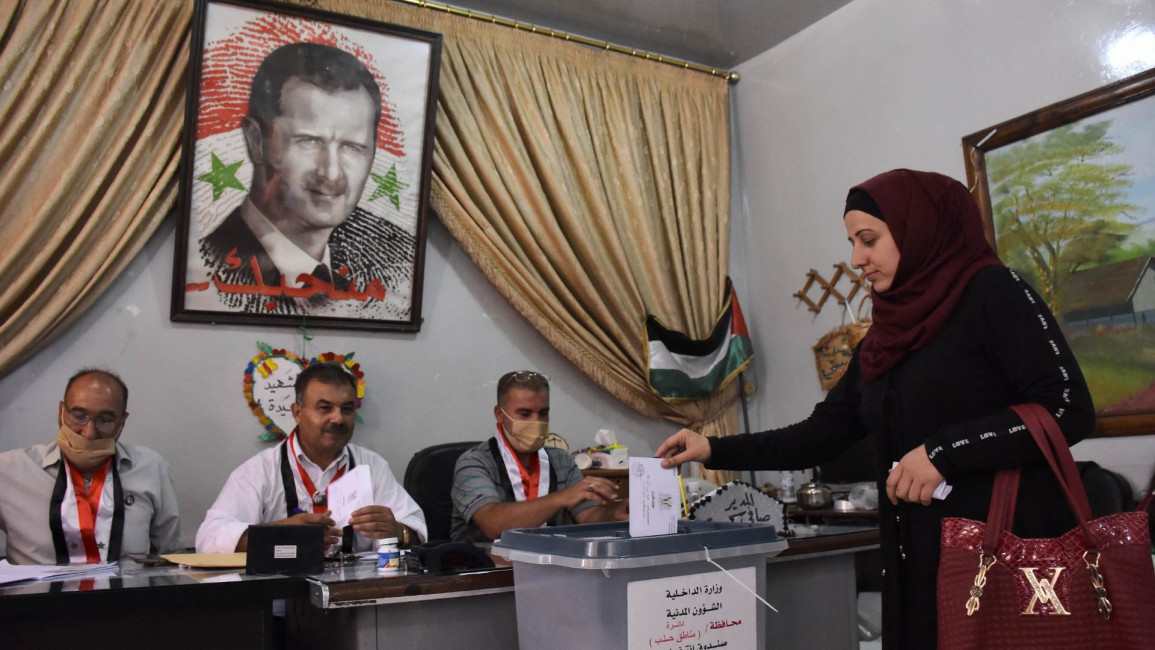Counting of 'farcical' Syria vote delayed by reruns
The reruns of Sunday's vote were held on Monday in four polling centres in Aleppo province and one in the eastern province of Deir Ezzor, the official SANA news agency said.
The fresh polling was ordered by the electoral commission after suspected discrepancies were reported between the number of cast ballots and the number of registered voters.
Such reruns are not uncommon in Syria, where results took four days to be released in the previous legislative polls held in 2016.
Elections in the country, governed by authoritarian leader Bashar al-Assad for the past two decades, are not considered to be free or fair but rather a guarantor of hegemony for Assad and his ruling Baath party.
"The regime has not known [real] elections since it seized power 50 years ago," said senior opposition figure Nasr al-Hariri, referring to the date Assad's father Hafez al-Assad became president.
"Everything called an election has been a farce under security and military grip... to form a sham parliament for the regime to use to pass legislation to serve the gang in power," he said.
"All that has changed today is that half the Syrian people have been forced to flee," he told AFP earlier this week.
|
|
This year's election comes during critical phase for the Damascus government, which has reconquered much of the territory lost at the beginning of the country's war but faces its hardest economic challenges yet.
More than 7,000 polling stations opened across government-held parts of Syria, including for the first time in former opposition strongholds, in the third such polls since the war started nine years ago.
The millions of Syrian refugees who fled the conflict were not eligible to vote.
Several lists were allowed to run across the country but, without any real opposition, Assad's Baath party and its allies were expected to win most of parliament's 250 seats.
"The Baath party - led by the president, Bashar al-Assad - will win most of the... seats," said Edward Dehnert, an analyst at The Economist Intelligence Unit.
"The remainder will be split between allied parties in the Baath-led progressive national front and independents, including prominent business figures."
The elections were twice postponed from April due to the coronavirus pandemic, which has infected 522 people and killed 29 in government-held areas, according to official figures.
Portraits of the contenders have been displayed across the capital for weeks, with the 1,658 candidates, including several prominent businessmen.
Many candidates are running on pledges to tackle sharp inflation and improve infrastructure ravaged by the conflict.
The next presidential polls are expected in 2021, and potential candidates will need the written approval of at least 35 members of parliament.
Follow us on Facebook, Twitter and Instagram to stay connected







 Follow the Middle East's top stories in English at The New Arab on Google News
Follow the Middle East's top stories in English at The New Arab on Google News
![Beirut stadium [Getty]](/sites/default/files/styles/image_330x185/public/1235817272.jpeg?h=a5f2f23a&itok=0UZr2fIL)
![Israeli forces destroyed a religious shrine in the village of Shama in southern Lebanon [Getty]](/sites/default/files/styles/image_330x185/public/2184560625.jpeg?h=a5f2f23a&itok=Ge_H4GfP)
![Archbishop Hanna [Getty]](/sites/default/files/styles/image_330x185/public/1232952067.jpeg?h=edfda2ae&itok=ga18er46)